Three generations of health care heroes inspired by Mildred Young Axelrod, M.D., School of Medicine Class of 1946
The love for medicine runs deep in the Young-Axelrod family.
"I called it a disease in our family, medicine just happened. You couldn't get away from it. It's part of our genetic make-up," Dr. Judith Axelrod said, as her mother, Mildred Axelrod, M.D., laughed alongside her.
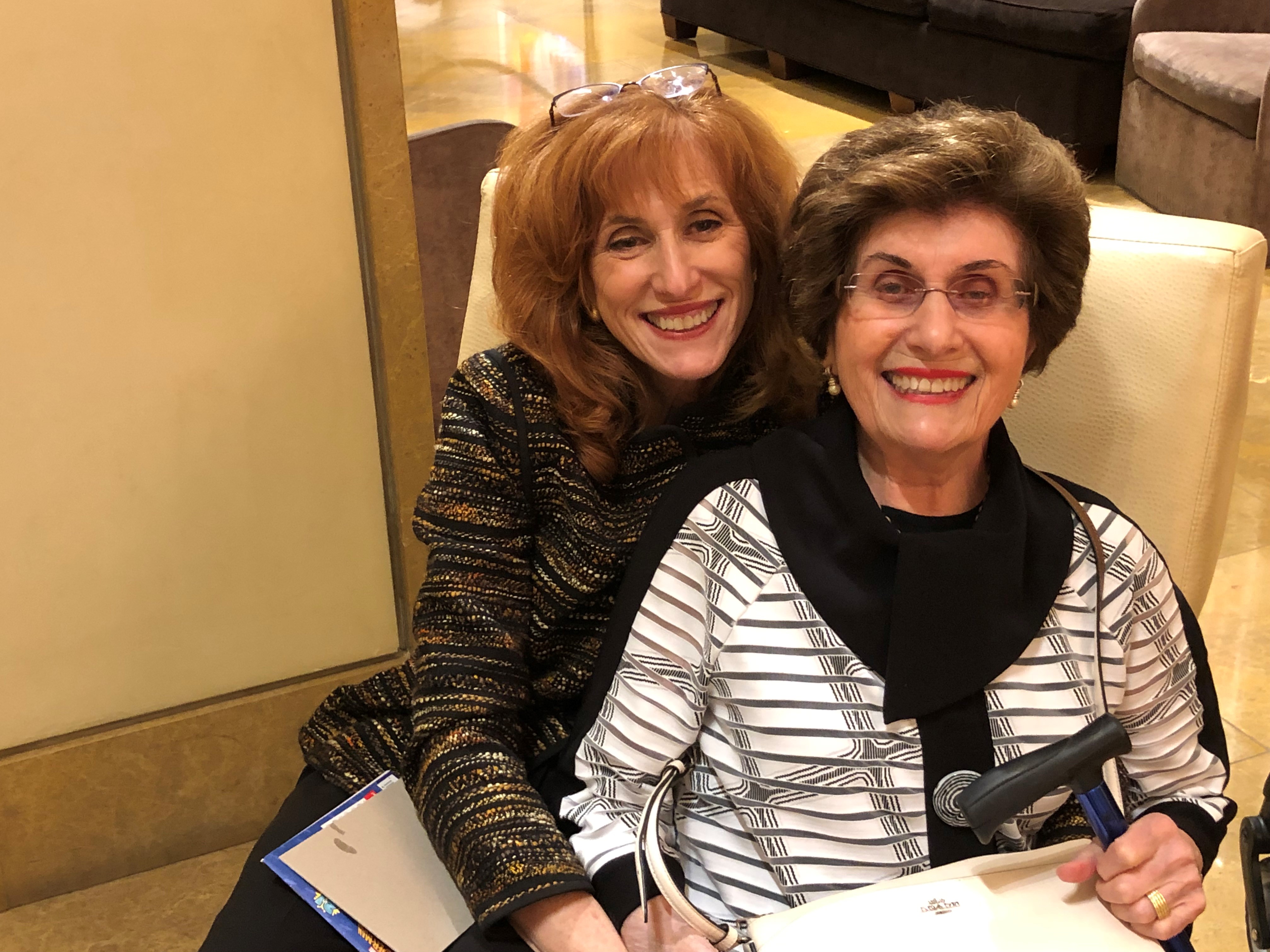
At age 98, Millie is one of the last two living members of the Wayne State University School of Medicine Class of 1946. She excelled in her career as an internal medicine physician for nearly 60 years, and continues to serve as inspiration for a legacy of health care professionals.
Millie's story begins five years after World War I. At 11 months old, she immigrated with her parents from eastern Europe to Michigan in 1923. Not much time passed until her brother Irving was born, and four years later, their brother David made the family complete. Both of her parents supported her education. "My father encouraged me, particularly. My mother was more reluctant as she was afraid I'd never get married," Millie said.
Millie earned her bachelor's degree in Medical Technology from Wayne University in 1942 and went to work as a laboratory technician. Though she enjoyed her job immensely, she shared with her father that she might like to be a doctor. "He said, 'Why don't you apply to medical school?' And I said, 'Daddy, I'd never get in,' and he said, 'Try!' So, I applied and I got in, and well, that started another story," Millie said.
"I remember the story differently" Judy said. "I obviously wasn't there, but I remember hearing that you said to him, 'I am really interested in going into medicine!' and he says, 'Apply and you probably won't get in, but apply!'"
She followed her father's advice and applied to medical school, and within the year was accepted into Wayne University College of Medicine's Class of 1946. "Detroit was the world. I'd never been anywhere else. And Wayne State gave me a wonderful education."
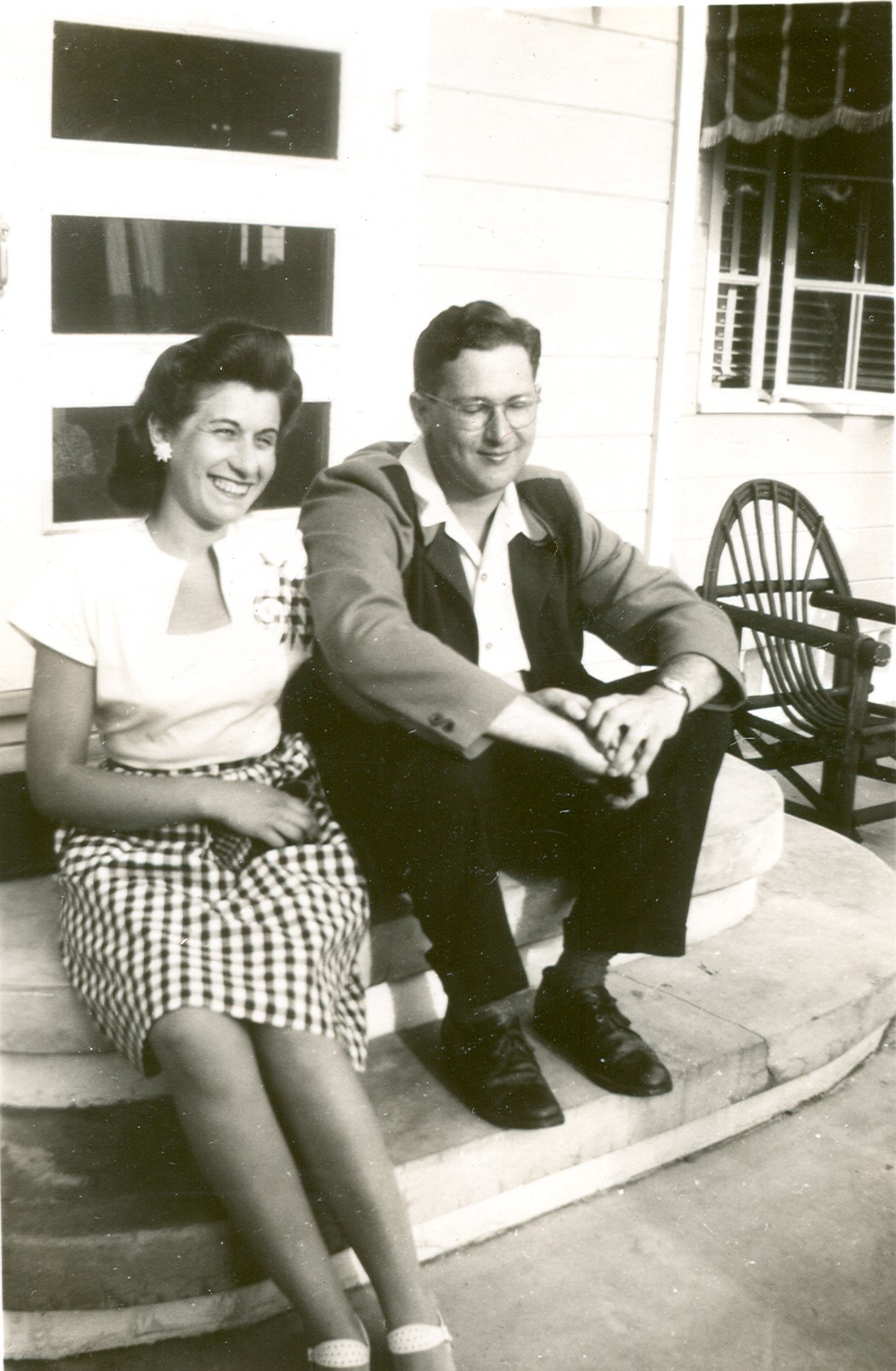
Millie said that as one of only four women in the class, she was generally well accepted. "I was particularly inspired by a professor of medicine who happened to be especially kind to women, which was unusual in that time. He was a young man, very bright, and encouraging, which made it so nice for all of us," she said of School of Medicine faculty member and Chief of Medicine at Detroit Receiving Hospital Gordon Myers, M.D.
On her first day of medical school, Millie met Robert Axelrod. "A group of students were in a large room and we were told to find a partner for our year in anatomy. This young man was told by his brother, 'If you don't mind working with a woman, she's pretty smart.' So he picked me to be his partner. Actually, when we examined our cadaver, he would do the dissecting and I would read the book and tell him what to do. At the end of the year, we were married," she said.
The couple completed medical school in three years during World War II. Robert was in the Army Specialized Training Program, and he was required to finish two years of medical service abroad after they both graduated. "There were two different places we could go: one was Bermuda, one was Newfoundland, and I didn't know where either was," Millie said. "His commanding officer suggested Bermuda." They took his advice.
Though she may not have been close in proximity, Millie's experience in medical school inspired her brothers to apply as well. Irving also attended Wayne State, graduating with honors as the youngest in the Class of 1947, while David Young went to the University of Michigan and graduated in 1951, first in his class. All three of the siblings were internists at a time when specialties were just starting to emerge. "It was either internal medicine, or surgery, or orthopedics," Millie said.
Robert and Millie returned to Detroit with their son, David Axelrod, who was born in Newfoundland. The couple then started their residency at Wayne County General Hospital and Infirmary. Based in Westland, Mich., the sprawling complex was previously named Eloise Psychiatric Hospital, the largest facility of its kind in the United States. The couple lived together on site for a truly immersive, hands-on training experience, while Millie's parents helped with childcare for David, and then Judy.
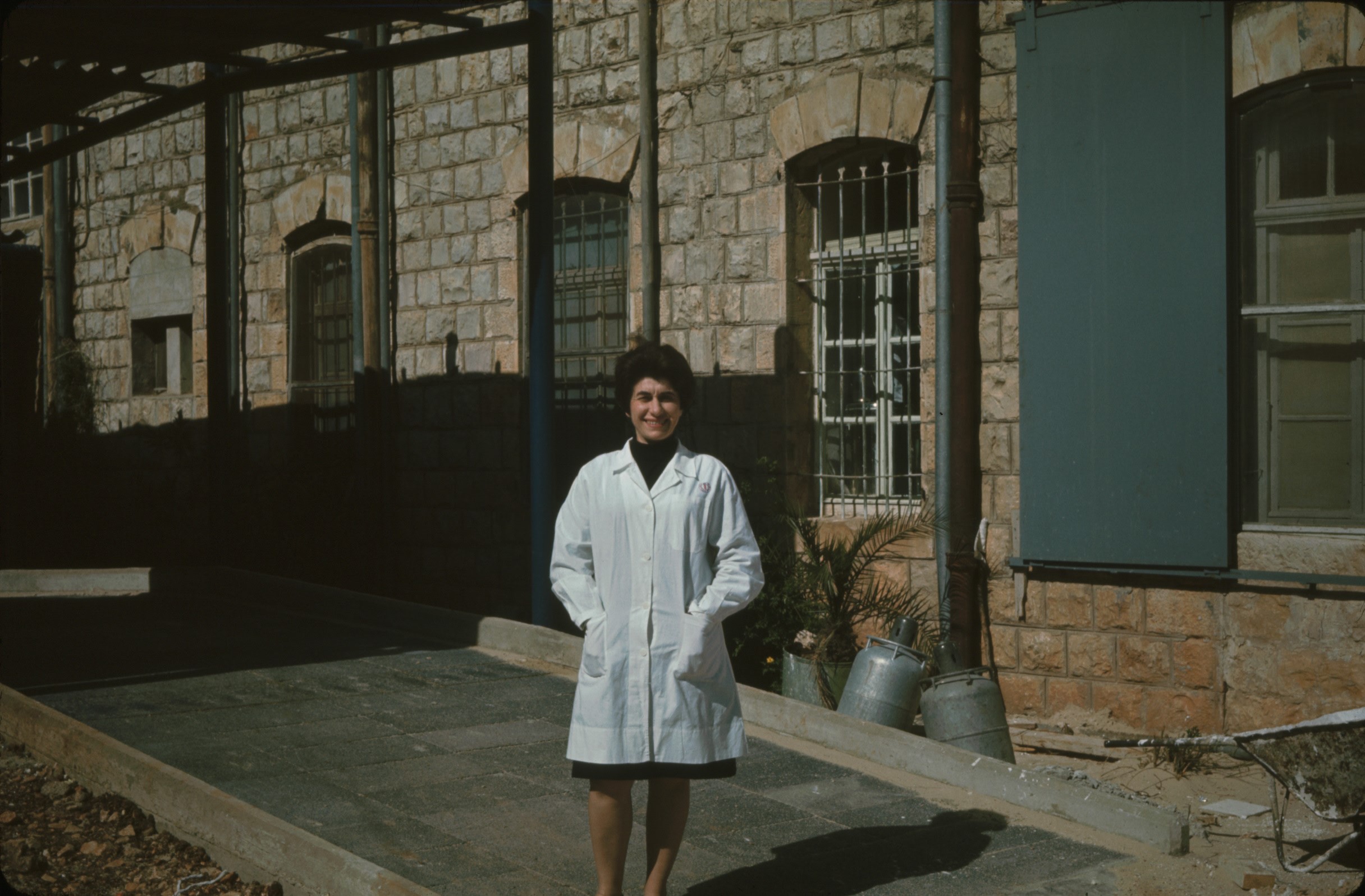
The pair went on to practice for many years, and in 1963, they joined Medico, a group of international physicians who aimed to provide medical services to underdeveloped countries. On one of Medico's trips, the family lived in Afghanistan for more than a year, where Millie and Robert were put in charge of the department of medicine at a local hospital while teaching at Kabul University. "Having a woman doctor was quite amazing, so women, men and doctors from all over came to see her," Judy said. David was 13 years old and Judy 10, so they joined local children for their education. Just a few years later, the family moved again to serve indigenous populations in South America. "My husband wanted the children to see what the world was like, so they knew that it wasn't always the way we had it at home, and that it wasn't as easy for everyone as it was for us," Millie said.
"One of my fondest memories was dinnertime, when my parents would talk about what they did. And they made it sound so much fun, they were so exciting . It was the love of medicine and the love of helping people that they had. It was a love story," Judy said.
Robert died in 1968 at the age of 45, but Millie continued her work with a career that spanned Metropolitan Hospital in Detroit, private practice in Royal Oak and other locations. She retired at age 80, and she said, "I hated to give it up!"
Medicine carried on through both David and Judy, an allergist-immunologist and a behavioral-developmental pediatrician respectively.
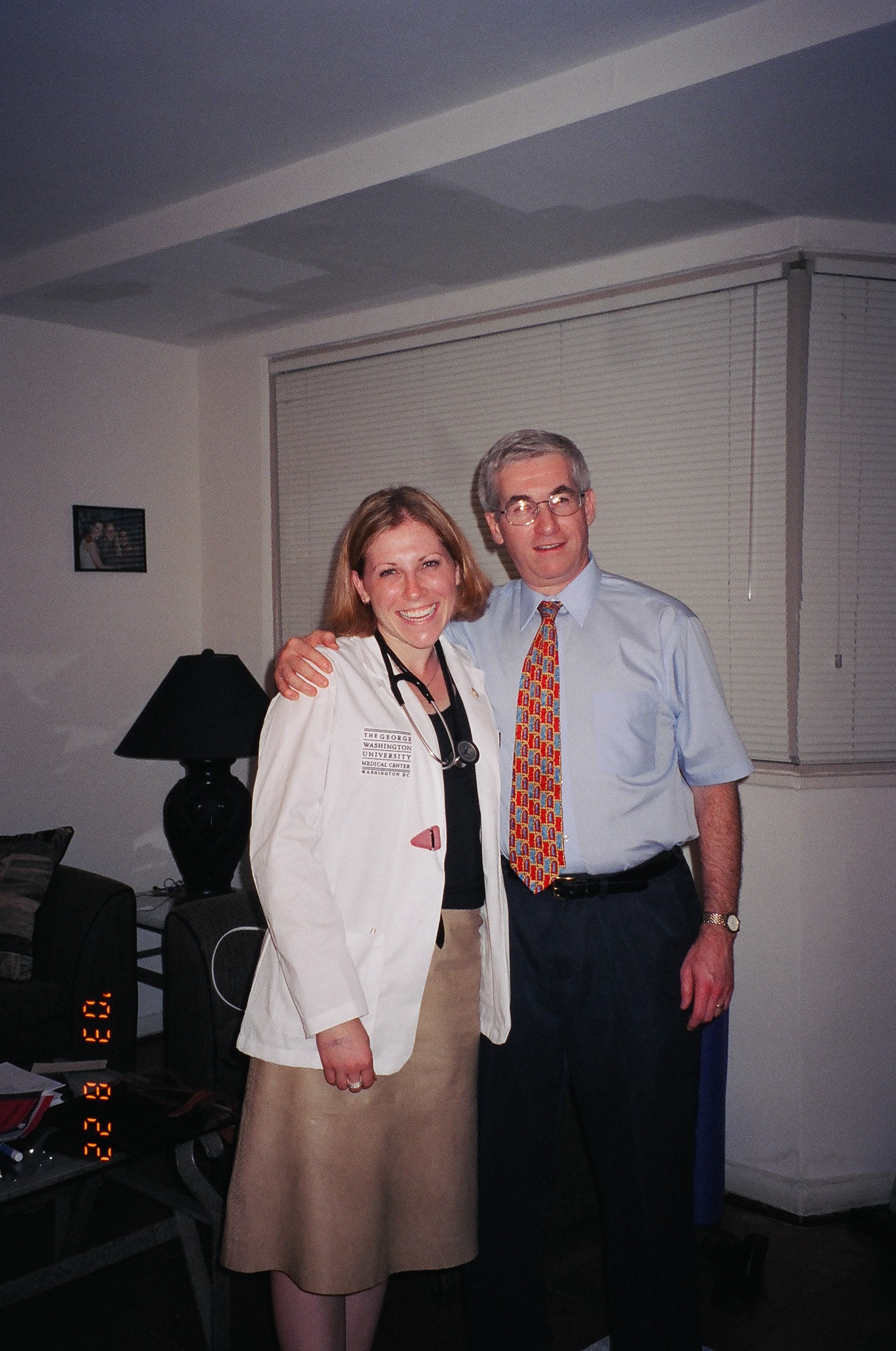
with daughter Sara at white coat ceremony
"My brother went straight from college to medical school to practice, and all my cousins did the same. I took five years off between college and medical school to see what else I could do. I tried to fight away from it, but there was too much that drew me in … . When I walked into medical school and gross anatomy, I knew I was in the right place," Judy said.
It wasn't just Millie's children who loved medicine; both David and Irving Young's children soon followed in their footsteps. "Shira was a dermatologist and went to Wayne State (M.D. '79), Eric is a nephrologist and went to Michigan, Joel is a psychiatrist and went to Wayne State (M.D. '89), and then we have the next generation. One's an allergist and immunologist too, and Joel's son Ben is a medical student at Wayne now! Then we have a physician assistant, three nurses, I think some of whom are nurse practitioners, and one is a physical therapist," Judy said. "We started thinking about it, realizing what a legacy she has. She really stimulated interest, not only for herself, but for her brothers, their children as the second generation, and it's now going to the third generation. It was something that was very family, very important, and an honor to be allowed in this profession."
A second-year medical student at the Wayne State University School of Medicine, Benjamin Young said, "My great-aunt Dr. Mildred Axelrod was a pioneer for women in medicine. A lifelong dedication to the profession started with her, and extended to her brothers: my great-uncle, Irving Young, M.D., and my grandfather, David Young, M.D. Their children, including my father, Joel Young, M.D., transmitted this enthusiasm to me, my sisters and cousins. Three generations later, I am honored to serve as a conduit for her legacy here at the Wayne State University School of Medicine."
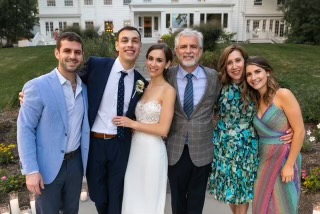
Millie has lived with Judy and her family in Kentucky for more than ten years, but the extended family still makes sure to connect. "Thanksgiving, we have at my house and everybody comes here, and so the table always talks medicine. Well, medicine and politics," Judy said. "We're very close all around; it's a love story for family and for medicine, and we are very fortunate. It's a gift that we feel and that we want to give."